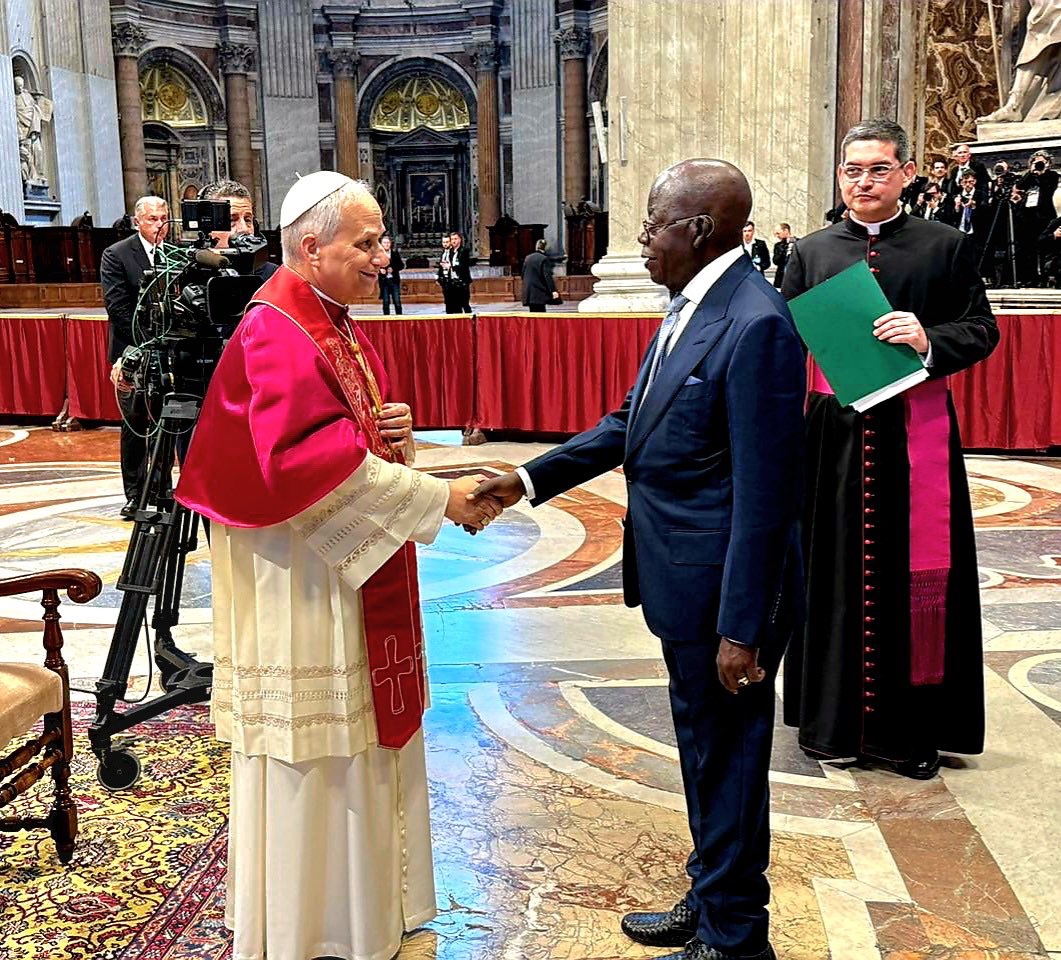In a poignant statement, Nigeria’s President Bola Ahmed Tinubu declared, “If we use our diversity not for adversity but for prosperity, the country’s hope is stability and progress.” This powerful remark encapsulates a vision for Nigeria that transcends division and harnesses the nation’s rich tapestry of cultures, ethnicities, and ideologies as a catalyst for sustainable growth. As Nigeria navigates complex socio-political and economic challenges, the president’s words serve as both a call to action and a blueprint for fostering unity, stability, and progress. In this blog post, we’ll unpack the meaning behind Tinubu’s statement, explore its implications for Nigeria’s future, and discuss how embracing diversity can transform adversity into opportunity.
The Context of Tinubu’s Vision
Nigeria, often described as the “Giant of Africa,” is a nation of remarkable diversity. With over 250 ethnic groups, multiple languages, and a blend of religious and cultural traditions, Nigeria’s diversity is one of its greatest assets. However, this diversity has, at times, been a source of tension, fueling ethnic rivalries, religious conflicts, and political polarization. From the Biafran War in the 1960s to recent debates over resource allocation and regional representation, Nigeria’s history reflects the challenges of managing diversity in a way that promotes unity rather than division.
President Tinubu’s statement comes at a critical juncture. Since assuming office in May 2023, his administration has grappled with economic reforms, insecurity, and social unrest. Issues such as inflation, unemployment, and separatist agitations have tested the resilience of Nigeria’s social fabric. Against this backdrop, Tinubu’s call to reframe diversity as a tool for prosperity rather than adversity is both timely and strategic. It reflects an understanding that Nigeria’s potential lies in its ability to unite its people toward a common goal.
Decoding the Quote: Diversity as a Pathway to Prosperity
At its core, Tinubu’s statement is a plea for inclusive governance and collective responsibility. Let’s break it down:
-
“Use our diversity not for adversity…”
Diversity, when mismanaged, can breed adversity—conflict, mistrust, and fragmentation. In Nigeria, historical grievances, such as perceived marginalization of certain ethnic groups or unequal resource distribution, have often fueled adversity. Tinubu acknowledges this reality but challenges Nigerians to shift their perspective. Instead of allowing differences to divide, he urges the nation to see diversity as a unifying force. -
“…but for prosperity…”
Prosperity, in this context, extends beyond economic wealth to include social cohesion, political stability, and cultural vibrancy. By channeling diversity into collaborative efforts—such as inter-ethnic partnerships, inclusive policies, and equitable development—Nigeria can unlock its full potential. For example, the cultural richness of Nigeria’s Hausa, Yoruba, Igbo, and other ethnic groups can drive tourism, creative industries, and global cultural influence, contributing to economic growth. -
“…the country’s hope is stability and progress.”
Stability and progress are the ultimate goals. Stability implies peace, security, and a predictable socio-political environment, while progress encompasses economic development, improved living standards, and global competitiveness. Tinubu’s vision ties these outcomes to the strategic use of diversity, suggesting that a united Nigeria is a stronger Nigeria.
Why Diversity Matters for Nigeria’s Future
Nigeria’s diversity is not just a demographic reality; it’s a strategic asset in an increasingly globalized world. Here’s why embracing diversity is critical for the nation’s stability and progress:
1. Economic Innovation and Growth
Diverse perspectives foster innovation. Nigeria’s ethnic and cultural diversity brings a wealth of knowledge, traditions, and skills that can drive economic transformation. For instance, the tech ecosystem in Lagos, often dubbed “Africa’s Silicon Valley,” thrives on the contributions of young Nigerians from various backgrounds. By creating inclusive policies that encourage entrepreneurship and collaboration across regions, Nigeria can amplify its economic potential.
Moreover, diversity in industries like agriculture—where different regions specialize in crops like cocoa, rice, or groundnuts—can enhance food security and export revenue. Tinubu’s vision suggests that fostering inter-regional trade and cooperation could turn Nigeria’s agricultural diversity into a cornerstone of prosperity.
2. Social Cohesion and Peacebuilding
Adversity often stems from mistrust and exclusion. In Nigeria, issues like the farmer-herder conflicts or agitations for resource control highlight the consequences of failing to address diversity constructively. Tinubu’s call to use diversity for prosperity aligns with peacebuilding strategies that emphasize dialogue, equity, and inclusion.
Initiatives like inter-ethnic youth programs, cultural festivals, and inclusive governance structures can bridge divides and build trust. For example, the National Youth Service Corps (NYSC), despite its challenges, has long served as a platform for young Nigerians to interact with and appreciate other cultures. Expanding such programs could strengthen national unity.
3. Global Competitiveness
In a globalized world, nations that embrace diversity are better positioned to compete. Nigeria’s diverse population gives it a unique advantage in diplomacy, trade, and cultural influence. The global success of Nigerian music, literature, and film—driven by talents from across the country—demonstrates the power of diversity in elevating Nigeria’s soft power. By investing in these sectors and promoting inclusivity, Nigeria can enhance its global standing.
4. Resilience to Challenges
Diverse societies are often more resilient because they can draw on a wide range of perspectives to solve problems. Whether addressing climate change, insecurity, or public health crises, Nigeria’s ability to tap into its diverse talent pool—from scientists in the Southeast to pastoralists in the North—can lead to innovative solutions. Tinubu’s statement underscores the need to harness this resilience for national progress.
Practical Steps to Turn Diversity into Prosperity
To translate Tinubu’s vision into reality, Nigeria must adopt deliberate strategies that prioritize inclusion and collaboration. Here are some actionable steps:
-
Promote Inclusive Governance
Ensure equitable representation in political and economic decision-making. Policies like federal character, which aim to balance appointments across regions, should be strengthened and transparently implemented to build trust. -
Invest in Education and Cultural Exchange
Education systems should emphasize national unity and cultural appreciation. Programs that expose young Nigerians to different regions and traditions can foster mutual respect and reduce prejudice. -
Support Inter-Regional Economic Collaboration
Create incentives for businesses and industries to operate across regions. For example, partnerships between tech hubs in Lagos and agricultural cooperatives in the North could drive innovation in agribusiness. -
Strengthen Security and Conflict Resolution Mechanisms
Address the root causes of conflicts, such as resource competition or marginalization, through dialogue and equitable policies. Community-based peacebuilding initiatives can prevent diversity from becoming a source of adversity. -
Celebrate Cultural Diversity
National campaigns, festivals, and media initiatives should highlight the contributions of all ethnic groups. Platforms like Nollywood can play a key role in showcasing Nigeria’s cultural richness to the world.
Challenges to Overcome
While Tinubu’s vision is inspiring, implementing it will require overcoming significant challenges:
-
Deep-Rooted Divisions: Historical grievances and mistrust among ethnic groups may resist efforts at unity. Addressing these requires sustained dialogue and accountability.
-
Economic Inequality: Prosperity cannot be achieved if wealth is concentrated in a few hands or regions. Inclusive economic policies are essential.
-
Political Will: Turning diversity into prosperity demands leadership that prioritizes national interest over partisan or ethnic loyalties.
-
Insecurity: Ongoing issues like banditry, insurgency, and communal clashes undermine stability and must be addressed decisively.
Conclusion
President Bola Tinubu’s vision—“If we use our diversity not for adversity but for prosperity, the country’s hope is stability and progress”—offers a roadmap for Nigeria’s future. In a nation as vibrant and complex as Nigeria, diversity is both a challenge and an opportunity. By choosing prosperity over adversity, Nigeria can harness its cultural, ethnic, and ideological richness to achieve lasting stability and progress. The journey will not be easy, but with collective effort, it is within reach.Join our Whatsapp channel to stay updated always!


